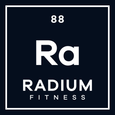
What do you know about your vitamins!
Do you ever wonder what all those vitamins are for walking through the aisles at Costco? Hundreds of different numbers and letters all scattered about. Well this week’s blog is going to be dedicated to helping you understand what each vitamin does, and where you can get the vitamin in natural foods.
First let’s understand the different between the two types of vitamins…
Fat soluble vitamins: A vitamin that can dissolve in fats and oils. Fat-soluble vitamins are absorbed along with fats in the diet and can be stored in the body's fatty tissue. They come from plant and animal foods or dietary supplements. Vitamins A, D, E, and K are fat-soluble.
Water soluble vitamins: A vitamin that can dissolve in water. Water-soluble vitamins are carried to the body's tissues but are not stored in the body. They are found in plant and animal foods or dietary supplements and must be taken in daily. Vitamin C and members of the vitamin B complex are water-soluble.
Now, let’s look at each vitamin and what it does for you…
Fat Soluble Vitamins:
Vitamin A - Helps form and maintain healthy teeth, bones, soft tissue, mucus membranes, and skin.
Where do I find it?
Liver (beef, lamb), Mackerel, Salmon, Tuna, multiple types of cheese, butter.
Fun fact: Deficiency is a leading cause of blindness in developing countries. In contrast, most people in developed countries get enough vitamin A from their diet.
Vitamin D - is also known as the "sunshine vitamin," since it is made by the body after being in the sun. Ten to 15 minutes of sunshine 3 times a week is enough to produce the body's requirement of vitamin D for most people. People who do not live in sunny places may not make enough vitamin D. It is very hard to get enough vitamin D from food sources alone. Vitamin D helps the body absorb calcium. You need calcium for the normal development and maintenance of healthy teeth and bones. It also helps maintain proper blood levels of calcium and phosphorus.
Where do I find it?
Exposure to the sun is the easiest way for most to obtain the necessary amounts. Few foods naturally contain vitamin D. The best dietary sources are fatty fish and fish oil, but mushrooms that have been exposed to ultraviolet light may also contain significant amounts.
Fun fact: Vitamin D deficiency is associated with poor immune function, an increased susceptibility to infections and autoimmune diseases.
Vitamin E - As a powerful antioxidant, vitamin E protects your cells against premature aging and damage by free radicals.
Where do I find it?
The richest dietary sources of vitamin E include certain vegetable oils, seeds and nuts. Other rich sources include avocados, peanut butter, margarine, fatty fish and fish liver oil.
Fun fact: Vitamin E deficiency is uncommon and is never detected in people who are otherwise healthy. It happens most often in diseases that impair the absorption of fat or vitamin E from food, such as cystic fibrosis and liver disease.
Vitamin K - Vitamin K plays a key role in blood clotting. Without it, you would run the risk of bleeding to death. In fact, the "K" stands for "koagulation", the Danish word for coagulation, which means clotting.
Where do I find it?
Vitamin K1 is abundant in many leafy green vegetables, while vitamin K2 is found in low amounts in animal-sourced foods and fermented soy foods.
Fun fact: Unlike vitamins A and D, vitamin K isn't stored in the body in significant amounts. For this reason, consuming a diet lacking in vitamin K may lead you to become deficient in as little as a week.
Water Soluble Vitamins:
Vitamin B6 - is also called pyridoxine. Vitamin B6 helps form red blood cells and maintain brain function. This vitamin also plays an important role in the proteins that are part of many chemical reactions in the body. The more protein you eat the more pyridoxine your body requires.
Where do I find it?
The richest sources of vitamin B6 include fish, beef liver and other organ meats, potatoes and other starchy vegetables, and fruit (other than citrus).
Fun fact: Vitamin B6 deficiency is uncommon in the United States. People who don't get enough vitamin B6 can have a range of symptoms, including anemia, itchy rashes, scaly skin on the lips, cracks at the corners of the mouth, and a swollen tongue.
Vitamin B12 - Like the other B vitamins, it is important for metabolism. It also helps form red blood cells and maintain the central nervous system.
Where do I find it?
Vitamin B12 is naturally found in animal products, including fish, meat, poultry, eggs, milk, and milk products. Vitamin B12 is generally not present in plant foods, but fortified breakfast cereals are a readily available source of vitamin B12 with high bioavailability for vegetarians
Fun fact: When you don't have enough, you have a type of vitamin B12 deficiency anemia called “pernicious anemia.”
Vitamin C – also called ascorbic acid, is an antioxidant that promotes healthy teeth and gums. It helps the body absorb iron and maintain healthy tissue. It also promotes wound healing.
Where do I find it?
Citrus fruits (such as oranges and grapefruit) and their juices, as well as red and green pepper and kiwifruit, which have a lot of vitamin C. Other fruits and vegetables—such as broccoli, strawberries, cantaloupe, baked potatoes, and tomatoes—which also have vitamin C.
Fun fact: People who get little or no vitamin C (below about 10 mg per day) for many weeks can get scurvy (like a pirate). Scurvy causes fatigue, inflammation of the gums, small red or purple spots on the skin, joint pain, poor wound healing, and corkscrew hairs.
The other six “B” vitamins - B1 (thiamine), B2 (riboflavin), B3 (niacin), B5 (pantothenic acid), B7 (biotin), Folic acid.
